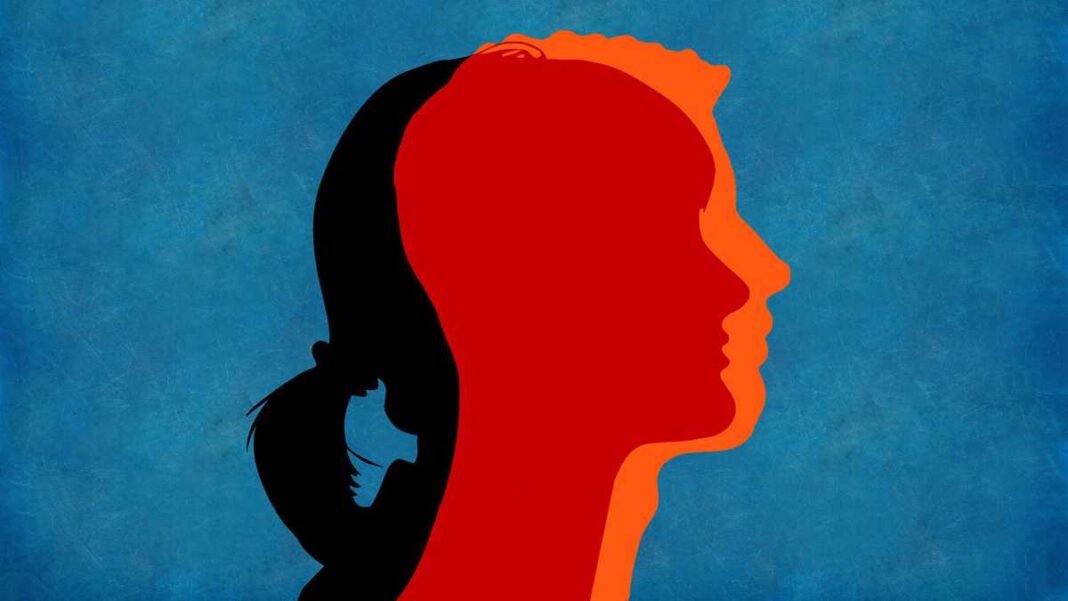Earlier today, I read an article in “Women’s Health” entitled “Your Gender Identity Can Change Over Time, And Yes, That’s Totally Normal.” Needless to say, this article raised several questions that I feel it’s now time to demand answers for.
First, is biological sex the same thing as gender or not? According to LGBTQIA+ activists, multiple prominent psychologists, the American Association of Psychologists, the American Medical Association, and other reputable sources, they are not. Sex and gender are not the same thing. Your biological sex is the sex classification your biology manifests, typically through primary sex characteristics, such as your genitalia. Gender, on the other hand, especially according to this article, is an identity. It is “how you feel about yourself and the ways you express your gender.” For the sake of argument, we’ll ignore the fact that they tried to define a word by using the word, which isn’t how that actually works, but we take the point. Sex is your biological makeup of your genetics, and your gender is how you feel.
Got it. This is what most transgender activists argue, believe, and advocate. You may be a biological male, but you might feel like a woman. Okay. It really doesn’t make much sense, but we’ll accept their argument… with a caveat: there are an unlimited number of genders… but there are only two sexes. Yes, intersex people exist, but they are not classified as a biological sex. They are, by definition according to the American Medical Association, considered a “genetic abnormality” in the same characterization as someone born with a medical or physical handicap is. Yes, they exist and they’re still a person, still human, but they are not classified as having a normal biology or physiology. It’s on par with someone being born with extra fingers or toes. Something didn’t develop normally during gestation which resulted in a biological abnormality. So, there are two sexes: male and female, while there are virtually unlimited genders.
This is even corroborated by the article in Women’s Health. Quoting Paula Leech, LMFT and an AASECT-certified sex therapist. According to Leech, “sex is our biology-and specifically our reproductive anatomy…” Sex and gender are different. Now, this is important, because, as I’ve said, sexual biology is broken down into two main characterizations: male and female. Yet, according to this article, male and female are listed as genders. In this article, Women’s Health specifically list female as a sixth gender, and male as a fifteenth gender. This raises questions.
First, did they simply make a mistake? If so, what does that say about the journalistic quality of Women’s Health and the credibility of their sources if they are going to directly contradict themselves and their own sources. Secondly, is sex and gender actually different? According to this article, as well as their scientific sources, they are. Sex is biological, and gender is psychological. Yet they specifically list “male” and “female” as genders. If this is the case, then what are the biological sex designations?
If this wasn’t a mistake, and they deliberately included male and female as genders, as well as biological sex classifications, then the argument they would seem to be making is that sex and gender are not as different as the experts seem to argue. This would mean that sex and gender are intrinsically linked, one being dependent on another. And since sex is an immutable biological characteristic, such as how tall you are, your eye color, how many toes you have, etc., then that would mean that gender is dependent on biological sex. This would virtually invalidate the entire argument about gender fluidity, transgenderism, non-binary genders, and every other gender identity. It would mean that the selection of genders, if it could possibly be expanded beyond sexual dichotomy, is far more limited than activists seem to believe. It would also mean that to impact the “gender identity” of a person, their biological sex would also have to be impacted, right down to their chromosomes. Gene therapy and genetic manipulation is a medical reality, but last I checked, our chromosome variants are integral to the very cell structures of our body and directly controlled by our DNA. Sex reassignment surgery, hormone therapy, and clothing options don’t affect things like our chromosomes.
If this was a mistake and gender and sex are two different classifications that aren’t intrinsically linked, then it also invalidates certain aspects of the transgender argument, especially concerning “gender-affirming care” for minors, such as puberty blockers. Puberty is a naturally occurring sexual maturing, especially reproductively. It’s the period of time in which primary and secondary sex characteristics manifest themselves and mature. It’s a biological process, meaning that the form of puberty would be dependent on the biological sex of an individual. If sex and gender are not intrinsically linked, if they are two different classifications of human existence not inherently dependent on one another, this would mean that puberty blockers would impact the biological progression of a person, not their gender, which invalidates the very idea of puberty blockers being any form of gender-affirming care. The same could be said for things like “gender-reassignment surgery”. Cutting off your penis and having a doctor reconstruct it into the form of a vagina does not change your chromosomes. It would not change your sex, leaving you as what you were born with. You’re either a male, or a female, which is the sexual dichotomy of all mammals.
This leads us to sexuality. There is this strange belief that gender identity translates to sexual preference and sexuality. Is this true? Is it a form of “discrimination” if a “Cis” person, meaning someone who’s gender identity conforms with their biological sex, is not attracted to someone who is transgender? Well, let’s figure that out.
First, it’s been well-established that sexuality is not a choice. A person doesn’t choose to be gay or bisexual, which is why acts of violence or discrimination against individuals of differing sexual orientation are hate-crimes. There is no accepted argument to this established fact. It’s also been well-established that a person’s sexuality is not dependent on their gender, as demonstrated by individuals such as Dylan Mulvaney, who is a “transgender” individual who was initially attracted to males and men but has also recently expressed an attraction to females and women. This is only one example, but it indicates a distinction between sexuality and gender identity.
There’s also the root word in the classification of sexual orientation and preference. “Homosexual” indicates a sexual attraction towards people of the same sex. “Heterosexual” indicates an attraction towards people of the opposite sex. “Bisexual” indicates a sexual attraction to both sexes. Also, let’s point out that from their clinical definitions, all three terms indicate the existence of only two sexes… That doesn’t really say much considering the latest rebranding of gender definitions, but I digress. The root word of these terms is “sex”, not “gender”, which would indicate that the attraction is rooted in the biological sex of potential partners.
Now, if sex and gender are not inherently linked, then the terminology indicating the attraction of individuals to partners of specific sexual orientations is not impacted by the gender identity and expression of potential partners. In other words, a person is attracted to the biological sex of a partner, not their gender. This means that a heterosexual male is not going to be attracted to another male, regardless of their gender identity. Since we’ve already established that sexuality is not something that is chosen, regardless if it changes, and sex and gender are not inherently linked, then the sexual attraction of sex cannot be actively discriminatory.
In other words, if sexuality isn’t something that is chosen, and it’s rooted in the attraction towards specific biological sexes split into an either/or dichotomy, then a person changing their expression isn’t going to attract individuals who are not sexually oriented towards their biological sex. To put it bluntly, if you’re a biological male who feels like a woman, cuts your penis off, undergoes hormone therapy, receives breast implants, puts on a bikini, and calls yourself a woman, that will not affect the biologically sexual orientation attraction of individuals who are attracted to biological females.
If sex, gender, and sexuality are all separate aspects of human identity and not intrinsically linked, then the change of one does not change the others. If they are linked, then that’s a whole different conversation. So, it’s time for the activists, psychologists, doctors, and social justice warriors to figure out their arguments.
Is gender and biological sex linked, or are they not? Is a person’s sexual orientation chosen, or not?
But all this raises one other question. Is gender really important? According to Women’s Health, as well as other sources, “gender identity” is an expression. If this is true, then they’ve completely invalidated the importance of gender in the first place and put it on par with the value inherent in a person’s name. Every single individual on the planet is unique. This includes their sense of expression. No two people think identically, and no two people express themselves identically. If gender is simply an extension of individual expression, and every individual has a unique expression, then it would mean that no two people share the same exact gender. This would mean that, as of March 26, 2024, there are more than seven billion genders on the planet. This virtually invalidates the importance of gender identity, as it’s about as intricate to a person as their hobbies, their name, their favorite color, their favorite food, or their favorite television show or song.
If gender identity is an expression of the individual, then it’s as varied as every individual on the planet, which invalidates gender classifications because each person only fits into one classification, and every gender classification only has one person in it, which invalidates the need for those classifications and makes gender as important to society as a random person’s name.
By Burt Lafleur















































